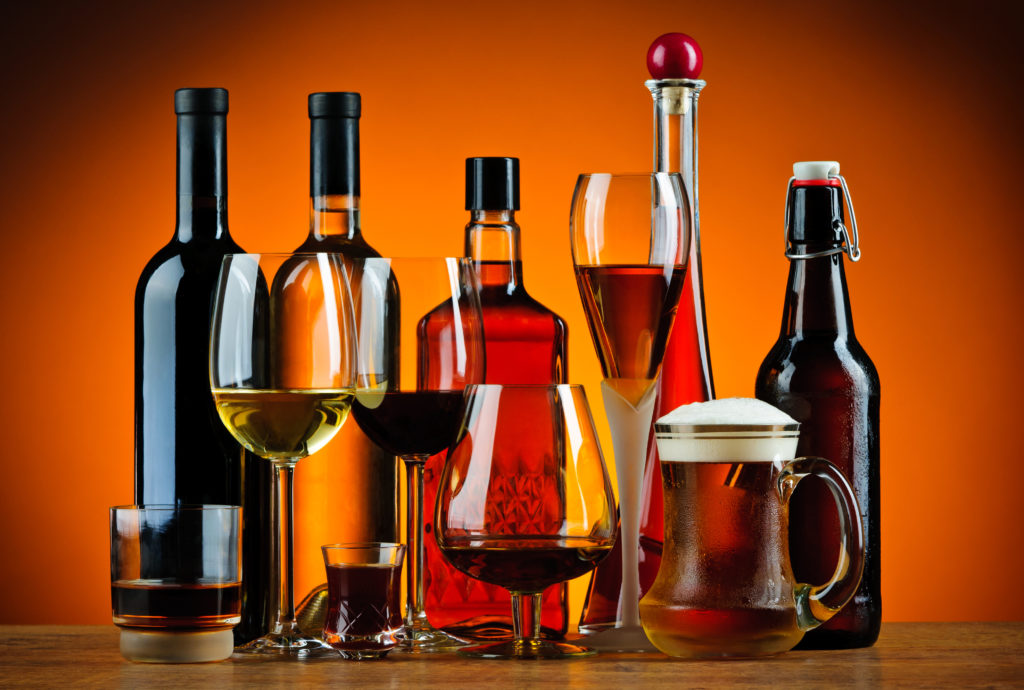Quick Hits
Daily brief research updates from the cognitive sciences

The tide seems to have turned on alcohol. Though we have always known that excessive alcohol consumption is negative there were for a long time inconsistencies with the research into modest levels of alcohol consumption – with multiple studies showing beneficial effects.
These effects could, however, be from other sources, such as the antioxidants in red wine, or the increased social contact through drinking with friends. I reported here on how alcohol even in modest amounts can lower life expectancy – gulp! However, mild amounts only had mild effects – that’s the good news for you (us) drinkers.
A new study just published has looked at correlations between alcohol consumption and iron levels in the brain. High iron levels in the brain is associated with various neuro-degenerative conditions such as Alzheimer’s and reduced cognitive function. The data was taken from the UK’s biobank and data from 21’000 people was analysed. This connects various lifestyle factors, personality, demographic, cognitive function, and is combined with brain scans and other biological data.
The researchers around Anya Topiwala of the University of Oxford found that more than seven units per week was associated with markers of high iron in a region of the brain called the basal ganglia. The basal ganglia is an important part of the brain associated with, amongst others, reward, but also motor control, and learning. This higher iron accumulation was associated with slower executive function, lower fluid intelligence, and slower reaction times.
There were other regions of the brain which showed higher iron levels, but they didn’t find strong and robust enough associations to deem these causal.
There are a number of caveats to the study we also know for example, that many people underestimate how much alcohol they drink. So, seven units is a very rough estimate.
However, this does show and support other research that shows even moderate alcohol consumption can have detrimental effects on the brain and cognition. Low to mild quantities though do show mild, if any, correlations to these declines.
So, the advice is simple – go easy on the drink!

Andy Habermacher
Andy is author of leading brains Review, Neuroleadership, and multiple other books. He has been intensively involved in writing and research into neuroleadership and is considered one of Europe’s leading experts. He is also a well-known public speaker speaking on the brain and human behaviour.
Andy is also a masters athlete (middle distance running) and competes regularly at international competitions (and holds a few national records in his age category).
Reference
Anya Topiwala, Chaoyue Wang, Klaus P. Ebmeier, et al.
Associations between moderate alcohol consumption, brain iron, and cognition in UK Biobank participants: Observational and mendelian randomization analyses.
PLOS Medicine, 2022; 19 (7): e1004039
DOI: 10.1371/journal.pmed.1004039
More Quick Hits
You Wake Up 100 Times Each Night – And That Helps Memory
Quick HitsDaily brief research updates from the cognitive sciences have written numerous posts and articles on sleep and the brain (review here), and the evidence is crystal clear. Good and consistent sleep is essential to all aspects of physical...
Only Three Factors Can Predict Mental Illness With 90% Accuracy
Quick HitsDaily brief research updates from the cognitive sciences here are multiple mental disorders that can afflict us human beings. And the assumption is that these are complex in nature and there are a multitude of paths to mental illness....
Cooperation Amongst Strangers Is On the Rise
Quick HitsDaily brief research updates from the cognitive sciences espite a belief in many that society is falling apart and becoming less caring and social this study proves the opposite. A study published by Yuan et al. with the American...
Brain Network For Social Attraction Identified
Quick HitsDaily brief research updates from the cognitive sciences umans do it. Birds do it. Fish do it. So do multitudes of other species. We flock together, come together, are attracted to our kind. We are a social species. But the question is...
The Brainwaves That Boost Creativity
Quick HitsDaily brief research updates from the cognitive sciences outlined here how recent research has shown that the brains of highly creative individuals use different networks, and this also reminded me of separate piece of research from a...
How Creative Brains Function Differently
Quick HitsDaily brief research updates from the cognitive sciences an you learn creativity? Well, you can learn anything, and you can certainly learn to be more creative. But the big question is do those people high in creativity have brains that...






